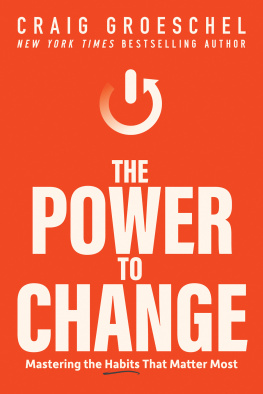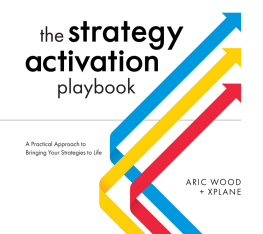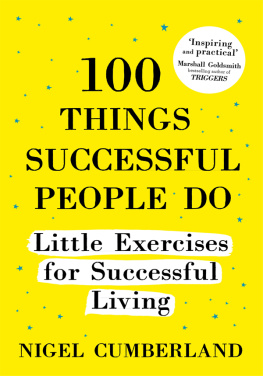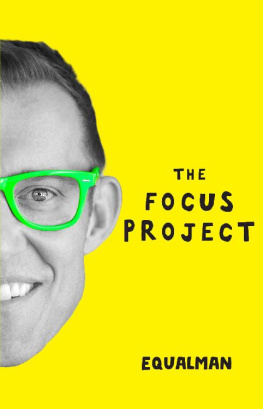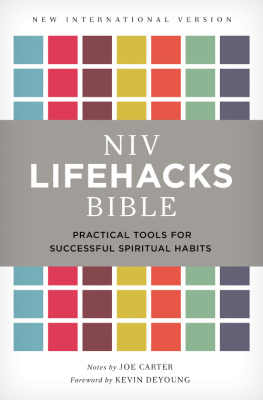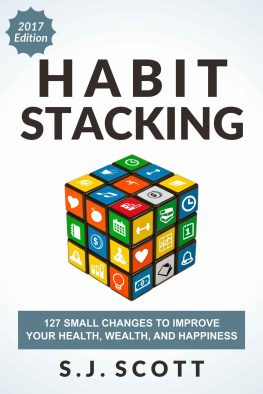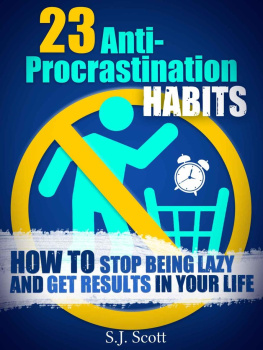Breathe, Focus, Attack
A Triple-Threat System for Creating the Life You Want
ian schechter
Copyright 2019 Ian Schecter
All rights reserved. No part(s) of this book may be reproduced, distributed or transmitted in any form, or by any means, or stored in a database or retrieval systems without prior expressed written permission of the author of this book.
I was waiting for something extraordinary to happen,
but as the years wore on nothing ever did unless I caused it.
charles bukowski
This book is dedicated to my mother,
who constantly reminds me how she didnt drop me
on my head as a child.
Acknowledgments
Special thanks to the rest of my family: Dad, Noah and Matthew. You have all taught me so much, and I love you.
Contents
Chapter One:
Its Never Too Late
In this first chapter, were going to discuss why its never too late to make your life better, but were also going to dig into a way of thinking about how we approach challenges in life. I call this Breathe, Focus, Attack . As you may have guessed, it has three steps. Weve all got things in our life wed like to change, but change requires a catalyst . You cant do things the same way youve always done them and expect new results. The first step is always the hardest, from health to love to business. Its never too late to take the first stepand youre going to do it. But before you do, lets talk a little about late bloomers, people who took that first step later in life.
Tokyos Landlord
Because society loves a good underdog story, youve probably heard about how Michael Jordan was cut from his high school basketball team. You probably also know a little something about JK Rowling, who was 30 when she finished Harry Potter and the Sorcerers Stone , only to have it rejected from 12 publishing houses. You may also know that she received a tiny $3,000 advance from Bloomsbury and that the initial print run was a measly 1,000 copies. (Of course, shes now one of the most successful authors in modern history.) You probably know that Steve Jobs and a dozen other world class entrepreneurs dropped out of college.
You probably dont know about Taikichiro Mori, but in the early 90s he was the richest man in the world. He was Japans Warren Buffet before Buffet had risen to prominence. He also didnt get started until he was 55 years old. By 1992, he was worth 16 billion dollars, roughly double the net worth of Bill Gates.
Mori was a serene but peculiar man, a quiet genius. He abstained from alcohol and tobacco and worked in a simple black kimono in his office, slightly embarrassed by his international status, but his story begins much earlier. Born in 1904, Mori grew up in the Toranomon neighborhood in Minato ward, Tokyo. Then, Toranomon was a sleepy residential neighborhood criss-crossed by narrow alleys between rows of wooden houses, a scene closer to The Last Samurai than the intense urban sprawl of modern Tokyo.
In his early years, the neighborhood was destroyed not once but twice. The first time was in 1923, when an earthquake devastated much of Tokyo. The second was during World War II, when Tokyo was firebombed. After World War II, Mori taught trade theory at Yokohama City University, where he led a quiet but pleasant life as an academic. Anyone who knew him mightve assumed hed do that until he retired, then perhaps taken up golfing. In 1959, Mori inherited two buildings from his father. He couldve sold them. He could have sat on his fathers business, letting it stagnate. Instead, he had other ideasbig onesand he took action.
It took time, but once hed decided to revolutionize the neighborhood hed come from, he was not deterred. He had broad redevelopment plans, and he painstakingly convinced the entire neighborhood, both residents and businesses, to support his plan. He bought additional buildings and moved his own employees into the neighborhood. These employees in turn supported his revitalization efforts. Over time, he transformed Tokyos Minato ward into a slick, modern foothold in the city from which to expand his growing real estate empire. Over time, he became known as Tokyos landlordin a good way.
From Landscaping to Big Business
My storys not entirely different. I came out of my college years cocksure and positive I was heading for easy success. I had great grades in college, which I carried forward into business school. After graduation, I applied to a multitude of companies, then sat back and waited for the interview invitations. I was sure theyd be lucky to have me, chomping at the bit to hire.
Well, none wanted me. Each and every one of them turned me down. Instead, I went to work in New York City for my fathers landscape design company. Instead of sitting in a leather office chair in a rockstar executive suite, I found myself sweating in the drivers seat of a plant delivery truck, wondering how the hell Id gotten there. I was humbled.
Over time, the sting to my pride faded, and instead of wondering where Id screwed up, I started thinking about how to move forward. The first step in everything that came after was in accepting that I wasnt as smart as I thought I was. So I learned everything I could from my fathers businessafter all, it was a successful one. And when I was sure Id soaked up as much as I could, I knew it was time to strike out on my own. Forget working for a bunch of companies that didnt want me. Instead, Id start my own company. At 28 I started from scratch, scrabbling from the bottom to build my first e-commerce business and to mold myself into an Internet marketing authority. I couldnt have done that fresh out of business school. Now Im thriving as a serial entrepreneur.
Youth and Experience, Effort and Magic
As a species, we tend to romanticize youth. What goes hand in hand with this is a proclivity for associating genius with immaturity. We love a good prodigy almost as much as we love a good underdog. By 1894, on the sunny Spanish coastal city of Mlaga, Picasso had already earned himself a reputation as a budding master of his craftat the age of 13. Mozart was five when he penned his first composition. By the time he was 12, mathematician Blaise Pascal had independently discovered nearly all of Euclids geometric proofs.
But we know better, right? Most of the 21-year-olds I know spend more time crushing beer cans on their heads than writing concertos. It doesnt make them stupid or lazyit makes them young people who are trying to have fun, and thats fine. Part of the equation of a prodigy story is that the prodigy doesnt usually have to try very hard. Their skill is something more like a superpower than an earned expertise, something for which they seem to just have a preternatural affinity. Like they were born for this.
Thats not entirely accurate. Most of the geniuses you know have busted their asses for decades. Somewhere, buried in an old attic, your favorite musician has old cassettes or burned CDs of their early recordings squirreled away, and theyre garbage. Its not limited to creative pursuits or business or anything else. Take love, for example: youre roughly twice more likely to get divorced if you marry in your 20s than if you marry later. Its not hard to imagine whybecause our failures matter and because we learn through experience. Our first loves are rarely our last or best loves, and were not even fully ourselves until later in life. As a species, we continue developing and changing well into adulthood.
The achievements of the prodigies and famous young loves of the world are not greater because they came easy or young. Nor does the fact that they achieved notoriety earlier mean their road to greatness is somehow greater than othersits just a different path, not a better one. Note also that plenty of young savants burn out early and quickly. So, dont buy into the lie that achievement is a young persons game. For most people, thats not how it works.


